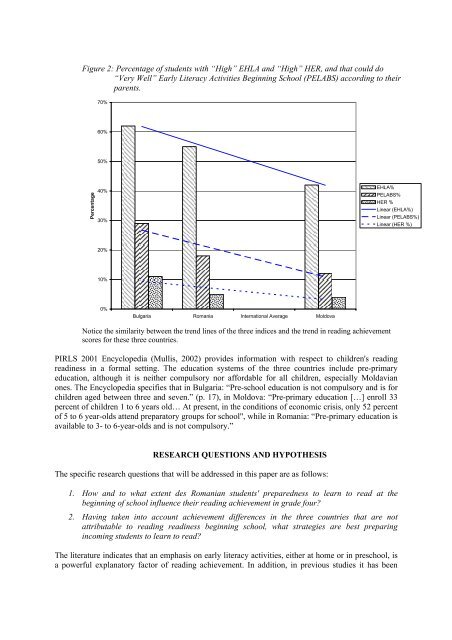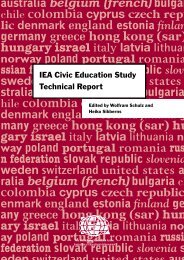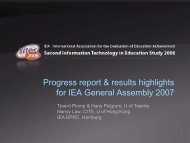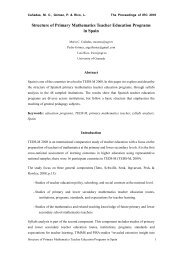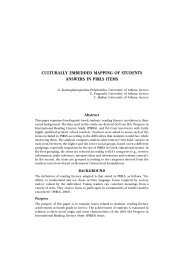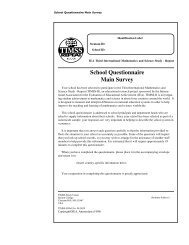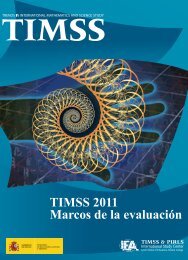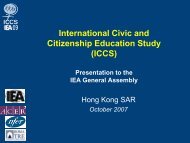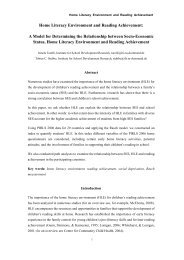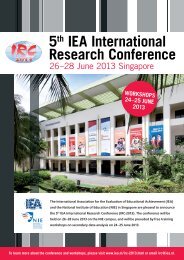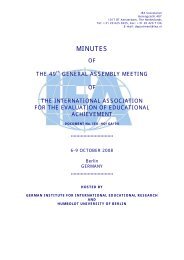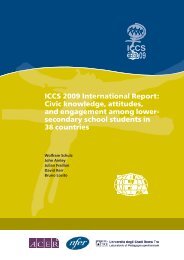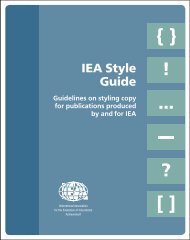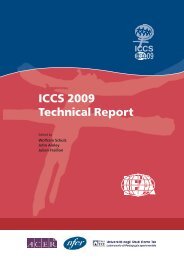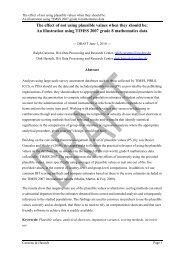THE EFFECTS OF EARLY LITERACY ACTIVITIES UPON ... - IEA
THE EFFECTS OF EARLY LITERACY ACTIVITIES UPON ... - IEA
THE EFFECTS OF EARLY LITERACY ACTIVITIES UPON ... - IEA
You also want an ePaper? Increase the reach of your titles
YUMPU automatically turns print PDFs into web optimized ePapers that Google loves.
Figure 2: Percentage of students with “High” EHLA and “High” HER, and that could do<br />
“Very Well” Early Literacy Activities Beginning School (PELABS) according to their<br />
parents.<br />
70%<br />
60%<br />
50%<br />
Percentage<br />
40%<br />
30%<br />
EHLA%<br />
PELABS%<br />
HER %<br />
Linear (EHLA%)<br />
Linear (PELABS%)<br />
Linear (HER %)<br />
20%<br />
10%<br />
0%<br />
Bulgaria Romania International Average Moldova<br />
Notice the similarity between the trend lines of the three indices and the trend in reading achievement<br />
scores for these three countries.<br />
PIRLS 2001 Encyclopedia (Mullis, 2002) provides information with respect to children's reading<br />
readiness in a formal setting. The education systems of the three countries include pre-primary<br />
education, although it is neither compulsory nor affordable for all children, especially Moldavian<br />
ones. The Encyclopedia specifies that in Bulgaria: “Pre-school education is not compulsory and is for<br />
children aged between three and seven.” (p. 17), in Moldova: “Pre-primary education […] enroll 33<br />
percent of children 1 to 6 years old… At present, in the conditions of economic crisis, only 52 percent<br />
of 5 to 6 year-olds attend preparatory groups for school", while in Romania: “Pre-primary education is<br />
available to 3- to 6-year-olds and is not compulsory.”<br />
RESEARCH QUESTIONS AND HYPO<strong>THE</strong>SIS<br />
The specific research questions that will be addressed in this paper are as follows:<br />
1. How and to what extent des Romanian students' preparedness to learn to read at the<br />
beginning of school influence their reading achievement in grade four<br />
2. Having taken into account achievement differences in the three countries that are not<br />
attributable to reading readiness beginning school, what strategies are best preparing<br />
incoming students to learn to read<br />
The literature indicates that an emphasis on early literacy activities, either at home or in preschool, is<br />
a powerful explanatory factor of reading achievement. In addition, in previous studies it has been


